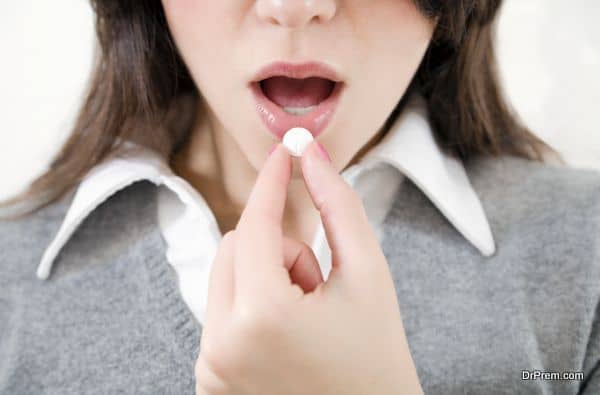Surprising as it may seem, a woman can lactate even if she is not pregnant. Lactation, which is the period of milk production from the mammary glands, is integral to childcare. The natural breast milk is the result of a composite interaction between estrogen, progesterone and prolactin. During delivery, there is an imbalance in the composition (with falling estrogen and progesterone but prolactin level remaining high). When the same biological process can be replicated (not naturally), lactation is observed. However, for lactation without pregnancy, medical advice is feasible even though the condition may not be harmful.
Change in hormonal level
As mentioned earlier, prolactin plays a pivotal role in lactation. During the life cycle of a woman, there can be many stages which bring about hormonal changes (prolactin levels). When the amount of prolactin surpasses certain level, lactation is observed.
It is not obligatory for a woman to be pregnant to undergo hormonal changes. They can be observed even in the absence of pregnancy, although they may be more pronounced during pregnancy. However, it is important to undertake expert advice for determining the harmful effects of hormonal imbalance, if any. There may be an underlying disease which is being signaled by lactation.
Stimulation of nipples
It is not rare to find women, who have not given birth biologically, wanting to feed their children. Induced lactation can serve the purpose, causing women to produce milk. Stimulation of nipples, when done in a specific manner, can cause lactation. By stimulating, the release of prolactin is encouraged.
Breasts play a vital role in the reproductive system. It has been observed that if there is regular sucking of the nipples in a prescribed manner, lactation can be found. Nursing partners can assist women wanting to lactate to nourish a child of breast milk. Breastfeeding also enables to develop the indispensable mother-child bonding, where physical touch plays a crucial role.
Miscarriage
Women who had miscarriage can experience lactation. Miscarriage is followed by some hormonal alterations causing lactation. There can be some milk oozing out of breasts.
Miscarriage is sometimes misunderstood as a part of the menstruation, and even goes unnoticed. When facing such a situation, it is recommended to consult a doctor to handle the situation appropriately.
Medication

Certain medication leads to lactation, when pregnancy is absent. Medication aimed at increasing prolactin levels in the body can cause lactation. Sometimes, medicines may accompany a lactating/nursing mother, if there is insufficient production of milk. However, such medicines need to be administered carefully due to their side effects. Reglan, Sulpiride and Domperidone are some medicines that encourage lactation. Domperidone, an anti-nausea medication, has a side effect of raising the prolactin levels.
Breast milk can come as a side effect of medicines. Major tranquilizers can be one among them. Medical management enables production of milk even in the absence of pregnancy.
Herb
Females in their child-bearing age, from 16 to 40 years (approximately), can lactate even when they are not pregnant. Usually, the condition is harmless, but expert advice must be incorporated before arriving at a conclusion.
It has been observed that intake of some herbs results in lactation. Common examples include fennel, anise seed, fenugreek, hops and others. Recommended intake of some herbs have been found to yield favorably in lactating.


